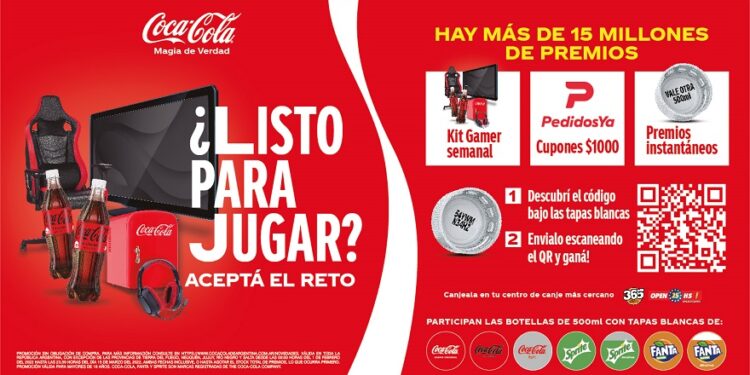Expanding your business into Mexico presents lucrative opportunities, and leveraging contests and sweepstakes can be a powerful marketing strategy to engage with potential customers and gather hard-to-develop prospect leads lists. However, it’s imperative to understand the legal landscape surrounding these promotions to ensure compliance and maximize success.
Why Sweepstakes and Contests Are a Good Marketing Strategy for International Businesses
Sweepstakes and contests are effective tools for driving new leads and increasing brand visibility in Mexico. These promotions offer an interactive and engaging way to connect with your audience, encouraging participation and fostering brand loyalty. By offering enticing prizes and incentives, businesses can attract attention, generate buzz, and differentiate themselves from competitors in the Mexican market.
Laws that Regulate Contests and Sweepstakes Law in Mexico
In Mexico, contests and sweepstakes are governed by various laws and regulations to ensure fairness, transparency, and consumer protection. The Federal Law for the Protection of Consumers (Ley Federal de Protección al Consumidor) and its Regulations (Reglamento de la Ley Federal de Protección al Consumidor) outline the legal framework for these promotions. These laws mandate content guidelines, including the prohibition of hate speech, protection for children, and promotion of cultural diversity. Broadcasters are also required to ensure political neutrality during elections, providing equal airtime to all candidates. Additional regulations cover advertising standards, public service obligations, and support for Indigenous and community media, ensuring diverse and accessible broadcasting across the country.
Additionally, the Federal Telecommunications and Broadcasting Law (Ley Federal de Telecomunicaciones y Radiodifusión) and the Federal Criminal Code (Código Penal Federal) contain provisions relevant to contests and sweepstakes, particularly concerning advertising and fraud.
Key Considerations for Contests in Mexico
- 1. Clear and Transparent Rules: Ensure that the rules of your contest are clearly defined and accessible to participants, emphasizing transparency and fairness.
- 2. Registration Requirements: Depending on the nature and scope of your promotion, you may need to register it with the Federal Consumer Protection Agency (Procuraduría Federal del Consumidor, PROFECO), complying with registration requirements to avoid legal consequences.
- 3. Prize Fulfillment: Be prepared to fulfill the prizes promised to winners promptly and in accordance with the terms outlined in your promotion’s rules, avoiding delays or failure to deliver prizes.
- 4. Advertising Restrictions: Adhere to advertising regulations outlined in the Federal Telecommunications and Broadcasting Law, ensuring that promotional materials are truthful, not misleading, and comply with industry standards.
- 5. Data Privacy Compliance: Safeguard participants’ personal data in compliance with Mexico’s data protection laws, such as the Federal Law on Protection of Personal Data Held by Private Parties (Ley Federal de Protección de Datos Personales en Posesión de los Particulares), respecting privacy rights and confidentiality.
Promotions in Mexico

One example of a successful promotion in Mexico is Coca-Cola’s “Destapa y Gana” campaign. By encouraging consumers to collect codes from Coca-Cola products for a chance to win various prizes, Coca-Cola effectively boosts engagement and loyalty among Mexican consumers.
Promotions in Mexico require careful planning and execution to effectively engage with consumers and drive positive outcomes. Clear communication of rules, eligibility criteria, and prize details is crucial to avoid confusion or complaints among participants. Providing accessible entry methods, such as online forms or mail-in options, ensures inclusivity and maximizes participation from diverse audiences across Mexico.
One promotion that wasn’t well thought out and experienced legal consequences was implemented by Telmex, one of Mexico’s largest telecommunications companies. Telemex faced scrutiny over a promotional giveaway campaign that failed to comply with registration requirements. The company offered free smartphones to customers who signed up for certain service plans without obtaining the necessary permits from regulatory authorities. This oversight led to legal repercussions and damaged Telemex’s reputation.
Competitions in Mexico
Competitions in Mexico require an adherence to strict guidelines to uphold fairness and transparency. A clear definition of judging criteria and impartial selection of winners based on merit are essential to maintain the integrity of the competition. It’s crucial for businesses to avoid any bias or favoritism that could compromise the credibility of the competition and undermine consumer trust.

OXXO, a popular convenience store chain in Mexico, launched a successful competition inviting customers to create a new flavor for their exclusive beverage line. Participants were encouraged to submit their flavor ideas paired with creative names and descriptions. The winning entry was determined via online voting and expert judging. The chosen flavor was then produced and sold exclusively at OXXO stores nationwide. This competition generated significant engagement and excitement among customers, resulting in increased foot traffic to OXXO stores and heightened brand awareness for the company.

Not all competitions are so lucrative. In 2013, Grupo Bimbo, a Mexican multinational food company, launched a promotional contest offering consumers the chance to win prizes by collecting stickers from their bread products and redeeming them for rewards. However, the competition faced backlash and controversy when it was discovered that the redemption process was overly complicated and that many consumers couldn’t claim their prizes as advertised. This led to widespread dissatisfaction among participants, negative media coverage, and ultimately, damage to Grupo Bimbo’s reputation as a consumer-friendly brand.
Businesses in Mexico can draw valuable lessons from these examples by ensuring competitions are meticulously planned with clear guidelines and safeguards in place. By prioritizing transparency, fairness, and cultural sensitivity, businesses can effectively engage consumers and bolster their brand reputation in the Mexican market.
Risks of Noncompliance of Laws Governing Contests and Sweepstakes in Mexico
Failure to comply with regulations governing contests and sweepstakes in Mexico can have severe consequences for businesses, both legally and reputationally. Noncompliance may result in fines, legal actions, and damage to brand reputation due to consumer mistrust or negative publicity.

In 2018, Grupo Modelo, the Mexican brewery that produces Corona beer, faced legal scrutiny and public backlash for its “Corona Summer” contest. The promotion promised consumers the chance to win vacations to tropical destinations by purchasing specially marked bottles of Corona beer.
However, it was revealed that the contest failed to comply with Mexican regulations governing sweepstakes. The company did not adequately disclose important terms and conditions, such as entry requirements and prize details, leading to confusion among participants. As a result, Grupo Modelo received fines from regulatory authorities and experienced reputational damage due to consumer mistrust and negative publicity surrounding the mishandled promotion.
Another company that faced backlash over noncompliance is Walmart Mexico. In 2019, they found themselves in hot water after running a sweepstakes campaign that inadvertently violated data privacy laws in the country. The promotion offered customers a chance to win shopping vouchers by providing personal information through an online entry form. However, it was discovered that Walmart Mexico failed to obtain explicit consent from participants for data collection and processing, as required by Mexican data protection regulations. This oversight resulted in penalties imposed by regulatory authorities and a loss of consumer trust in Walmart’s handling of personal information. The incident highlighted the importance of understanding and adhering to Mexican laws governing data privacy in promotional activities to avoid legal consequences and protect brand reputation.
Businesses operating in Mexico must prioritize compliance with regulations governing contests and sweepstakes to mitigate legal and reputational risks effectively. By adhering to relevant laws, obtaining necessary permits, and implementing robust data protection measures, businesses can uphold consumer trust and ensure the success of their promotional campaigns in the Mexican market.
You May Also Enjoy
- Understanding the Legal Landscape of Contests and Sweepstakes in the UK
- E-commerce In France: A Market of Sophistication and Opportunity
- Maximize Employee Success: Navigating Mexican Workplace Expectations
